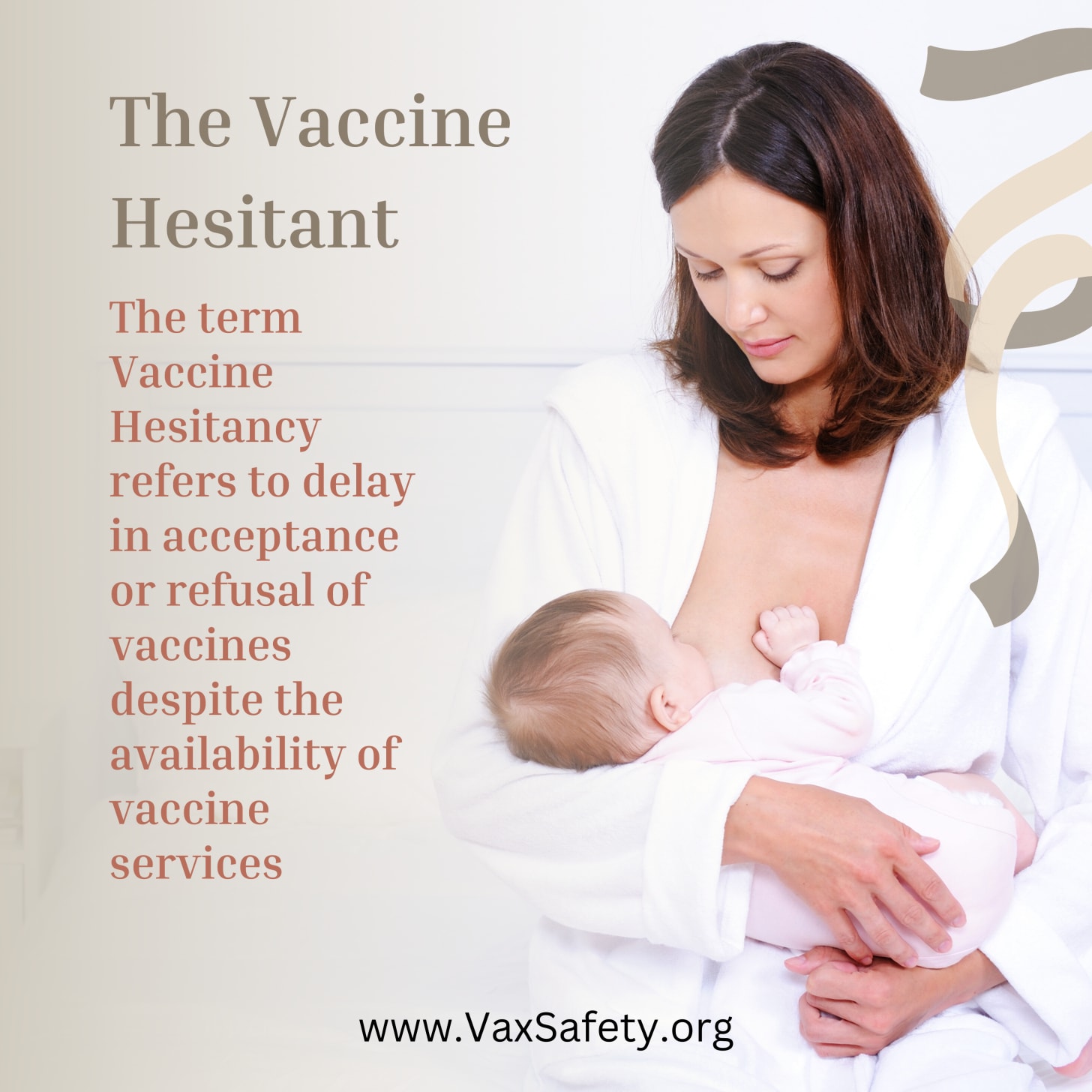Talking Point #12 - Vaccine Hesitancy
And how pediatricians are coached by the AAP to pressure parents into vaccinating so they make more sales
October is Vaccine Injury Awareness Month, and with Alexis Lorenze’s story of vaccine injury going viral on social media, it’s time to update the VaxSafety.org website, this Substack, and my new Instagram! I’ll be posting 60 talking points that break this conversation into easily digestible parts, making it accessible for everyone, even kids. So, let’s put on our black ribbons for awareness and spread the word. Feel free to share widely, and check back anytime for updates, as I’ll be adding more information as needed.
Did You Know? The term Vaccine Hesitancy refers to a delay in acceptance or refusal of vaccines despite the availability of vaccine services. Basically, it means you have decided to wait or not to vaccinate, and that’s OKAY. You can delay any vaccination for any reason - the reason doesn't matter!!! We will cover the different types of exemptions: IEP, personal, religious, and medical, in Talking Point #14.
You have the right to wait or not vaccinate. The United States Vaccine Program is VOLUNTARY for you and your children.
Vaccine hesitancy: A growing challenge for immunization programmes: https://www.who.int/news/item/18-08-2015-vaccine-hesitancy-a-growing-challenge-for-immunization-programmes
.
Did you know? that the American Academy of Pediatrics has an entire webpage dedicated to teaching physicians how to deal with vaccine-hesitant parents, complete with objection handling and talking points? It's kind of like used car sales coaching.
Why do parents need to be convinced to vaccinate? Today’s pediatricians are being taught to practically coerce parents into getting their children their shots. Shouldn’t parents be presented with the facts and then be able to make up their own minds? In fact, being presented with the facts to make up your own mind is called informed consent. What doctors practice now is called coercion.
Take your time and do the research. You can always vaccinate later, but you can never unvaccinate.
American Academy of Pediatrics, Talking with Vaccine Hesitant Parents: https://www.aap.org/en/patient-care/immunizations/communicating-with-families-and-promoting-vaccine-confidence/talking-with-vaccine-hesitant-parents/
AAP report offers strategies to counter vaccine hesitancy: https://publications.aap.org/aapnews/news/28178/AAP-report-offers-strategies-to-counter-vaccine?autologincheck=redirected
Countering Vaccine Hesitancy: https://pediatrics.aappublications.org/content/138/3/e20162146
Addressing vaccine hesitancy, Clinical guidance for primary care physicians working with parents: https://pmc.ncbi.nlm.nih.gov/articles/PMC6515949/
.
Did You Know? The World Health Organization named vaccine hesitancy as one of the top 10 threats in the world in 2019. So, if you decide to wait until you’re fully informed about what you’re putting in your body, you’re considered a threat to society. It’s absolutely absurd!
What if your reason for hesitating about the vaccine is that you don’t want to inject human fetal DNA into your body? What if you’re concerned that the vaccine was developed using SV-40 cells, which have been linked to cancer? Or perhaps you worry about repeatedly assaulting your child's immune system? There are countless "what-ifs" to consider. But the most pressing question remains: what if you simply don’t want to be part of an experimental group?
I don’t want to be the experiment and I certainly do not want my child to be an experiment anymore!
Check out this article that recently came out, 55 Undeclared Chemical Elements — Including Heavy Metals — Found in COVID Vaccines. https://childrenshealthdefense.org/defender/undeclared-chemicals-heavy-metals-covid-vaccines/
WHO, Ten threats to global health in 2019: https://www.who.int/news-room/spotlight/ten-threats-to-global-health-in-2019
.
Don’t forget— doctors get paid cash bonuses depending on vaccination rates at their clinic (Talking Point #20), and Big Pharma makes over 74 billion dollars per year just on vaccines (Talking Point #6). So, the pressure on parents is really unnecessary, especially without the immediate danger of serious diseases (Taking Point #6).





Addressing Parental Vaccine Hesitancy towards Childhood Vaccines in the United States: A Systematic Literature Review of Communication Interventions and Strategies
https://www.ncbi.nlm.nih.gov/pmc/articles/PMC7712553/